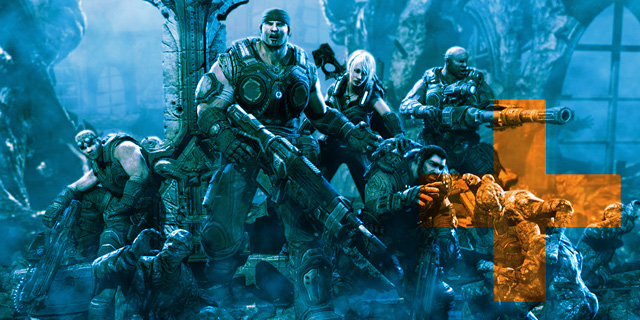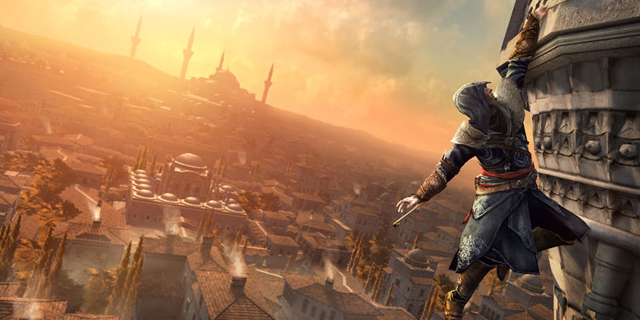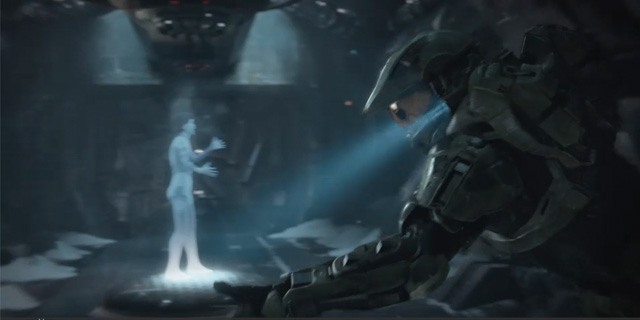
Games these days are often compared to feature length films in terms of writing and presentation. Unlike movies, games have more components beyond mere storytelling quirks; they are interactive, allowing for the story to become more in-depth and personal. None of this is new, though. We all know about how games and films can compare and just why the constant comparisons are, quite frankly, completely off base.
Where the two do compare is how the creators intend on grabbing hold of an audience. They want to create a believable world (or perhaps universe) for the players to feel a part of, with likable characters and a gripping story. Sometimes not all of these things fall into place, but they all lend themselves to the idea that, as another storytelling medium, there are many ways to keep people hooked as long as possible. And this is how we get the gaming trilogy.
Like any other trilogy, a game trilogy is created to encompass an overarching story that begins with one game and will finally resolve itself by the end of the third. This is attempting to be done in a meaningful way that makes all three games seem cohesive and connected, not just forced together. There are two ways developers (and in a lot of cases, publishers) go about this, and why both generally fail remarkably, at least compared to their original goal.

One way is the planned trilogy. Right from the get-go, a team decides that it’s going to make this one basic concept stretch out to fit three different games that will tell a very powerful plotline. Publishers love these ideas. If the first game is successful, chances are the two proceeding games will, at the very least, achieve moderate success as a result. More often than not though, these ideas fall through for one reason or another. The main flaw in this brilliant plan? The developers are overambitious.
Developers want to get as much meaningful content in that first game as possible, to hook the player in and establish a connection between them and this universe they have crafted. They want to introduce mechanics that may be altered as time goes on, but will remain the same over the span of these three games. They want a relatable cast of characters and a truly expansive world for these characters to explore, either linearly or non-linearly. But when they try to cram too much into one game, they end up with an overstuffed project that, for many gamers, leaves a lot to be desired.
The game may do well financially regardless, but when composing the follow-up, the team will have to rethink a lot of what they did wrong in the first game, even if what they did wrong is entirely subjective. What is left? A second game that might receive critical acclaim and sell just as well as the first, but leave a lot of hardcore fans of the original burned by their attempt to streamline an experience they felt made that first game unique. In the end, you have a successful franchise, but one that leaves its fanbase splintered, even marginally. Because of those lofty ambitions, you essentially ruin what could have been a perfect trilogy of games that share gameplay concepts, with only small tweaks and improvements that feel necessary. Sound familiar?

The other way this can fail is simple: the first game is a gigantic bomb. The publisher leads the way with a huge marketing push, proudly proclaiming it to be the next great franchise. They may even offer a contest that could entice a different audience into buying a product they might not otherwise be interested in. It may not seem this way at times, but gamers are smarter than that. So, the plan fails, and the supposed “planned trilogy” is just left at one game that ends on a pretty big cliffhanger, leaving the small group of people who were fans wanting more. There are many reasons this could happen, but it seems more like bad luck than anything else. Maybe the term “planned trilogy” is just something that should never be uttered.
And then we have the second way developers and publishers go about creating a videogame trilogy: they don’t. It’s simple, actually. The developers have a unique vision for a game that they think could do well, propose it to a publisher, perhaps even signing multi-game contract with them. The game does even better than expected and the next thing you know? It’s a trilogy. I mean, why not? The universe that has been created is big enough to support two more games, and they can easily stretch this one character’s story out to fit two more games even if that was never the original intention.

So, two sequels are released, both doing even better than the first game. Of course, once the credits for the third game start rolling, you know it’s over. You get a general sense of closure. Yes, they nailed it. This may not be the ending you envisioned, but they managed to wrap up this story nicely, leaving room for other spin-offs involving different characters. That one character’s story is over, done, and there is no reason to return to him at all. What would be the point?
Spin-offs are released, doing well, but not as well as expected. And then it happens. That character you loved, but felt their story was over? Oh, that character is back. Why? Because people will buy it and continue to support it; it is their favorite character, after all. “It’s a new trilogy!” They proclaim, almost stepping all over their words from a few years back as they announce it. The term trilogy essentially becomes meaningless. It’s just another big franchise now.

The series could expand, but a trilogy of games centered on a centralized plot and a strong character (or group of characters) is what was promised and is not always delivered. It’s disappointing to see such promise wasted away; in the end, it is a business, and we have to accept that. Of course, with any rule there are clear exceptions, some we are (hopefully) seeing now. That being said, chances are that the gaming trilogy is always doomed to fail for one reason or another.
Maybe in the grand scheme of things, none of this matters. A trilogy could just be a fancy marketing term to get people to remain loyal to a franchise, even during some rough patches. It’s just a shame to see what could be grand ideas fall flat for one reason or another. It’s a chance to tell a story and end it properly, or to see a game’s humble beginnings turn into something more meaningful in the long run. Or…it’s just another game publisher looking to make some more money. We get it. We’ll buy into it. What does it matter anyway, right?



















